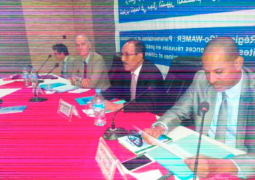The forum, held at a local hotel in Bijilo, was meant to enlighten different stakeholders on the main objective of the Convention aimed at protecting human health and environment from the release of mercury and mercury compound.
The executive director of NEA, Ndey Sireng Bakurin, (Madam Ndye Bakine) said The Gambia had been actively involved in the entire preparatory process of the Minamata Convention.
She said the process started with a preparatory meeting through the inter-governmental negotiating committee in January 2013.
The committee at its 5th session agreed to the text of the convention.
NEA executive director said the text was then presented for adaption and inclusion in the final act and opened for signature.
Madam Bakurin said the Gambia government joined the rest of the world in October 2013 in the Japanese city of Kumamoto to sign the Minamata Convention on Mercury.
Owing to its chemical properties, mercury has been wildly used as catalyst in several production processes including the production of electrical and electronic equipment and measuring devices as well as for extraction of metal and dental amalgams.
The NEA executive director said that in The Gambia mercury is mainly found in electrical, electronic and measuring device as well as in certain fluorescent tubes, batteries, cosmetics and soaps.
Mercury emission comes from range of human activities such as coal burning, incineration or disposal of mercury containing products and from natural sources, Madam Bakurin said.
She added that the government recognised the serious danger that mercury poses if not managed properly.
This is why it deemed it necessary to take action to mitigate such negative impacts of mercury by signing and ratifying the mercury convention.
Mercury and its compounds affect the central nervous system particularly kidneys and livers and cause impaired vision and hearing, among others.
When children are exposed to mercury, their normal growth is retarded.





